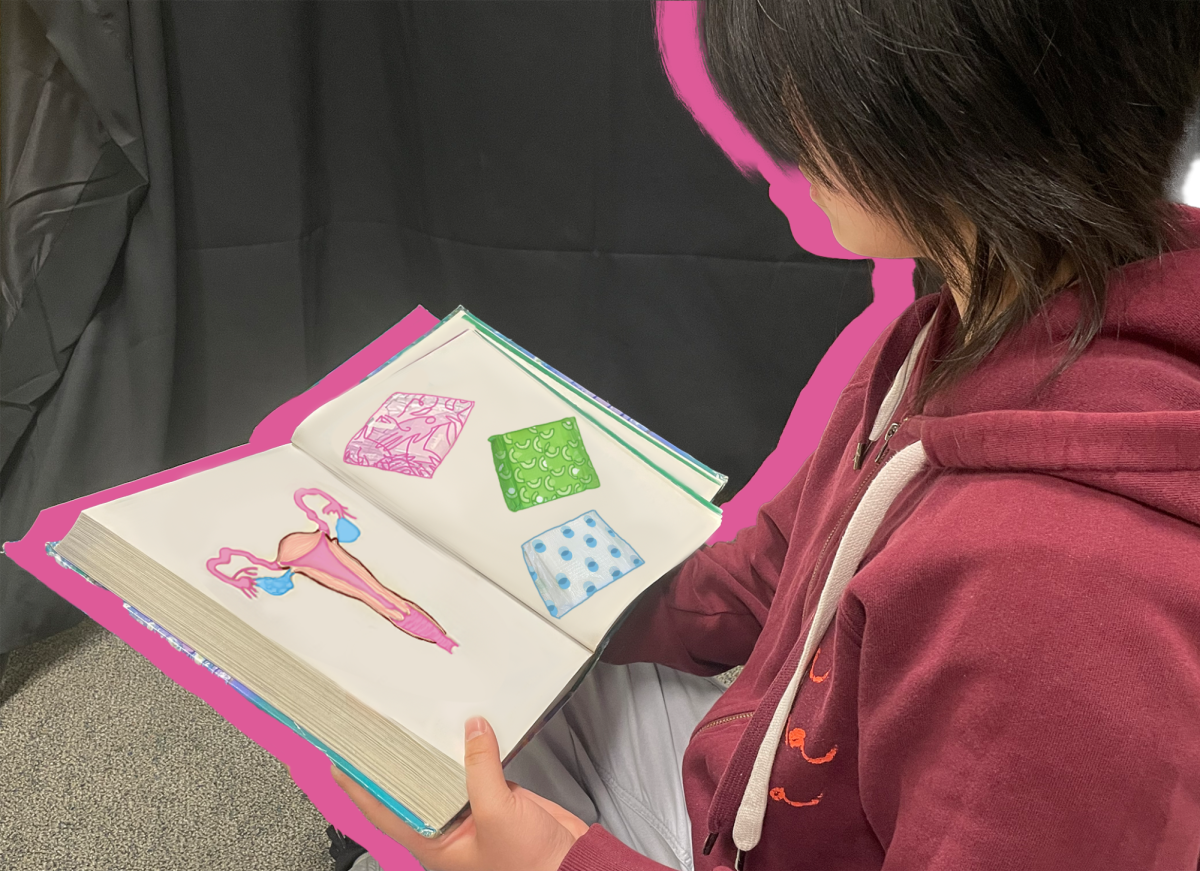Written by Kristin Chang, with additional reporting by Sebastian Zhang

A roast ham glistening on the table. A colorful array of side dishes. Under the tree, presents from mom and stepdad, stacked and ready to be torn open by senior Eva Braunthal and her two older brothers. But amidst it all, there was an absence that wasn’t talked about. Later, Braunthal would open her mailbox and there’d be a gift card of some sort, postmarked from Hawaii. And maybe later she’d be able to Facetime with her dad on the afternoon of Christmas day, where her dad’s family would tell her they missed her and wanted to see her. All the miles between her and her father contained in that envelope.
But despite it all, she doesn’t feel distant from her father anymore.
Before she was 10 and her father still lived close by, Braunthal didn’t understand what her parents’ split meant. When she was shuttled between two Christmas celebrations, each a weekend apart, she didn’t know that it meant that her parents didn’t get along.
When relatives gathered at her mom’s house, Braunthal remembers wondering, “Why can’t my real dad be here?” It was a thought she never spoke out loud. In her mind, her parents weren’t truly split, they were merely living two parallel lives that never happened to meet. It seems naive to her now, but she wished then that her parents were still together, and that they could have the kind of the big “traditional” Christmas seen on TV shows.
But when she finally did understand what two different celebrations really meant, she was angry. She blamed her father. Communication broke down. And on top of that, the idea of Santa had been ruined by two Christmases, two sets of presents under the tree delivered at different times.
“[Back then] I didn’t feel like I knew my dad’s family that well, but by high school I accepted that they were still my family,” Braunthal said.
Back then, Braunthal used to think of her mom’s side as “my” family and her dad’s side as “them.” But then she grew up. Her father moved to Hawaii Kai, Oahu: where he grew up, where his parents and brothers lived. By the time she was 13, she realized that it wasn’t anybody’s fault, and that the ocean between them didn’t mean it was impossible to still feel close during the holidays.
“I wish I could be in both places at once,” Braunthal said. “I’ve never been jealous of other families,” Braunthal said. Just as two Christmases had become her norm before, she quickly became used to Christmas with her mom and stepdad’s family, Facetiming her father’s family when she could and sending them her Christmas wish list so that they could send her present across time zones.
Since her older brother turned 18 and she could finally travel to Hawaii without the hassle of being an unaccompanied minor, she’s traveled several times to spend the holidays with her dad’s family. She was 14 the first time, and everything was a little strange and awkward at first. It was 80 degrees in Hawaii, there were flower decorations everywhere and she didn’t recognize many of her own family members’ faces. It was almost overwhelming at first. But they welcomed her, and when the celebration started, it felt like a festival.
“I got to meet relatives I’d never met before,” Braunthal said. “It was kind of awkward at first. But we’re still family, so it quickly became normal.”
Braunthal has always been used to mixed-culture Christmases: her mom’s family is part Japanese and her father’s family is Hispanic, and the differences are now even more pronounced.
At home, mochi was a holiday staple food, board games were a must and her family always peppered their conversation with questions about school. In Hawaii, everyone was open and affectionate, and extracurriculars were the topic of choice: they’d ask her about playing lacrosse or field hockey at school, and soccer always roused passionate opinions.
“It was funny because they all played soccer and my siblings and I don’t play soccer, so we used the excuse of ‘Tell me about it’ to [get closer to them],” Braunthal said. “It was a surefire way to eliminate any awkwardness.”
Braunthal was surprised by all of the cousins — people she’d never met — that were her age, and something she’d never had at home. They branched off from their older relatives and formed a group, bonding over the small things: music and sports and food. And after she returned home, her grandparents still didn’t forget to send her a gift.
To Braunthal, occasionally switching locations hasn’t at all detracted from holiday cheer. As with her first double Christmas, Braunthal perceives every change as growth, as heading somewhere new, literally and figuratively.
“I didn’t view it as a bad thing.” Braunthal said. “I took every big change as a sign that I was growing up.”
Click the images below to read the other stories























